
You are What You See: Treatment of Personality Disorders & Trauma with Acupuncture
Honoring who we are and developing comfort with ourselves is a Taoist ideal. Life is seen as the unfolding of the “Jing-Essence” (the original nature) within a person. At birth, we are given a “Ming” (destiny) as energies from the cosmos merge with those of our parents (the DNA): heaven and earth come together to form humanity.
Taoism says that each of us has a “curriculum,” or life path. We’ve been incarnated for a purpose, to explore a certain set of themes and lessons. Our personalities reflect our “Ming.” They are in service to our life path, our curriculum, our life lessons. The term “Xing” is used to describe the personality, meaning the nature that has been put inside of us to honor and help our destiny unfold. Our personalities are not random, they’ve been specially selected for us by our spirit. They help craft our lives, our experiences, what we are attracted to and what is attracted to us.
Chinese medicine views development of the personality as a dissemination of “essential qi.” The essence of our being unfolds and disseminates into each of the internal organs via a special pathway to craft our personalities and viewpoints. The pathway upon which the essential qi travels is a special, mysterious acupuncture channel that lacks a Western equivalent. This channel is called San Jiao, or Triple Heater. It is related to the Heart, Kidneys and Endocrine System.
The Triple Heater acupuncture channel travels along the outer arm into the neck and face, however it also has another pathway that travels along the back of the body (using the Bladder’s acupuncture channel), from the lower back into each of the internal organs where it disseminates “Jing-Essence” into each of the organs within the body.
Based on who we need to be, as specified by our “Ming,” the Triple Heater will direct a greater amount of “Jing-Essence” into the organ that represents a particular personality type. Our life unfolds based on our personality type.
Personality typing is popular within Chinese medicine. One of the major ways people are classified is by the Five Elements and their ruling organs. A Fire personality would be ruled by the Heart, a Wood personality by the Liver, a Water personality by the Kidneys, a Metal personality by the Lungs. Our nature expresses itself through our complexion, our voice quality, our scent and our dominant emotional tendencies. These are the most common ways of assessing a personality type.
We all see the world in a particular way, based on who we are. If we are a Liver (Wood) personality, we will see the world through the eyes of the Liver. Wood personalities are said to be goal-oriented people, they often have a voice with a “shouting” quality, a slight greenish hue to their complexions and tend to become angry or frustrated. If we are a Heart (Fire) personality, we will see the world as a Heart person. Fire personalities enjoy variety, new things, tend to be highly animated, have a “laughing” quality to their voices, slight reddish hue to their complexions and tend to be anxious.
We also attract certain experiences and people into our lives based on our personalities. A Liver personality may comfortably surround himself with Kidney and Heart people, as these types all get along harmoniously. The Liver person will naturally have tension with Spleen and Lung people. This is natural according to the Five Element Theory within Chinese Medicine. Some elements “generate” and nurture other elements. Other elements control, insult, overact and harass others. Just as in life, some people get along well and easy, while others have a natural conflict.
Our perceptions create our behavior and our behavior influences our social life. The Liver person may attract situations that will allow him to work through such Liver themes as anger, benevolence and ambition. A Heart person may attract situations relating to love, commitment, propriety and honor. Therefore the people and situations that come into our lives are, in a sense, sacred, as they reflect and support our “Ming” (destiny).
Personality disorders and/or personality changes are conditions which are written about in great detail in the Chinese Medical Classics. Aspects of our personalities can fail to develop, and/or become rigid and overactive, causing us social difficulty and conflict. Our personalities can also shift, usually due to trauma. We may for most of our lives be a Fire type personality, laughing and enjoying fun and innovation. Yet at some point we recognize there was a radical shift. We became more of a Metal personality, rigid, orderly, tending to ruminate about victimization, with increased vulnerability and a sense of grief. Since Fire and Metal are not elements that nurture and generate one another, this would most likely be a change that occurred due to trauma rather than a natural development. Our appearance can also change due to trauma. A person who once had a rosy complexion can become pale and drawn in their appearance, which mirrors the changes within the personality from a Fire to a Metal type.
A change in personality is a big deal. Not only can it cause social difficulties, but according to Chinese medicine, it means the “Ming” or destiny has been blocked. Our nature, as created by our spirit has shifted into a subpathway that may have taken us off our destined life path. This can create depression, anxiety and despair.
Personality shifts are seen as a dysfunction of the Triple Heater channel within Classical Medicine. The traumatic event harms the Pericardium channel (the partner of the Triple Heater), which creates blood and phlegm stasis within the body. The clear direction of the Heart becomes unable to communicate its will to the Triple Heater, which causes the dissemination process of essential qi to become scattered or altered. To treat personality changes (or disorders), the traumatic stasis within the Pericardium must be cleared so as to allow the Triple Heater to resume its natural flow.
The disruption to the Triple Heater’s dissemination of essential qi can also be congenital, coded in the DNA to create personality changes, or certain diseases to occur at particular transitions in a person’s life. This is much the same idea as when a particular gene “turns on” causing a disease to manifest when a person reaches a certain age. Within Chinese medicine this type of disorder is addressed through the Eight Extraordinary Vessels, which are connected to organs such as the brain, bones and uterus. The Extraordinary Vessel “Yin Wei Mai” is often most helpful in rectifying these types of issues.
Personality changes are often witnessed by those surrounding a person: their partners, friends and families. Behavior may change; the voice may change; there may even be alterations in the way a person looks. These changes can be distressing.
Personality changes can result from the inability to “handle” a trauma, occurring within a person’s outer or inner world. In a way, it can be seen as a type of avoidance mechanism, resulting in running away from the self.
Unfortunately, avoidance makes whatever we are avoiding stronger. This is one of the laws of manifestation. By putting energy into something through actively avoiding it, we give it life.
Avoidance often comes from fear. When we feel we cannot deal with something, we sublimate it: an unconscious form of avoidance. Medically, this is called latency. When we contract an overwhelming pathogen, be it virus or bacteria, if our immune systems are not strong enough to fight it, it can go into a latent state. The pathogen is shuttled into the joints, sinus, teeth, or minor blood vessels. Signs that our bodies and minds are becoming overwhelmed show themselves through the blood vessels, joint and teeth. Spider veins may begin to appear on the skin; joint and teeth problems may appear. These are early signs that the body and mind are having difficulty managing stresses or changes occurring in our lives or within ourselves. Spider veins are gatherings of blood stasis, which are like bruises, which can develop due to physical stress, but also due to mental or emotional stress. The Chinese medical name for spider veins are “Luo vessels,” which develop in response to stress that hasn’t been effectively discharged. They are like bruises to our bodies and minds that develop as we try to manage the stresses of life.
A similar process occurs psychologically. An emotional or mental issue that overwhelms us is placed into a “Luo Vessel.” They are holding areas within the circulatory system. These holding vessels, when they are full, interrupt the circulatory flow, both physically as well as psychologically. They can often express themselves as personality disorders, emotional sensitivity or volatility or loss of emotional expression. A person who always had a lot of compassion and empathy may one day realize they no longer feel very deeply. They’ve become numbed and uncaring, maybe even unable to connect and relate to others deeply. This can be due to trauma. This change is probably also expressing itself through the Luo Vessels.
Most of us are aware of the circulatory process of blood. There is a similar circulation of the psyche. There is a developmental process that occurs as we grow into social beings psychologically. We develop our ability for tactile sensation through the Lungs, differentiation through the Large Intestine, emotional response with the Stomach, mental processing with the Spleen, control with the Heart, social feedback with the Small Intestine, limits through the Bladder. These channels promote the development of our social personalities. Ideally, they feed the Kidney, Pericardium and Triple Heater Channels, which are involved in developing a sense of personality to create an outer world that will nurture our “Ming.”
When any of these channels becomes traumatized, the developmental process of the social psyche is disrupted. For example, if the Stomach is traumatized, a person may develop a difficult time managing his emotional response to the world. As the trauma to the psyche circulates through the other channels, the cognitive ability of the person’s Spleen may also become affected. They may develop obsessive tendencies with a difficult time processing mentally, which may lead to an imbalanced relationship with control, oversensitivity to feedback from others, and/or difficulty setting limits on their behavior. From this, addictions can result, where the person never knows when “enough is enough,” as the trauma to the Stomach affects the Bladder channel. Or, the person may become a “control freak,” as the Heart channel is affected.
When the trauma reaches the Kidney channel, the obsessive mental symptoms evolve into obsessive-compulsive behavior, where a person begins “acting out.” If the trauma travels further, into the Pericardium channel, the person may begin “hiding” and disengaging from the world.
When a trauma travels to the Triple Heater channel via the circulatory process, changes in personality can occur. Dramatic cases of this include Schizophrenia and Alzheimer’s Disease, which can occur from circulatory spreading of a social trauma.
Trauma can also go deeper into the body, beyond the level where it is visible via spider veins. Trauma that is so powerful and deep can bypass the circulatory system and go into the joints and bones, where it hides. The body tries to manage it as long as it can until it is forced to erupt, sometimes creating catastrophic changes such as degeneration, autoimmunity or life-threatening diseases. Chinese medicine says deep hidden trauma that affects the joints and bones are accessed through the Extraordinary Vessels, but more directly via the Divergent Channels which travel into the joints and access hidden, deep pathology.
The first step in healing personality issues, whether related to trauma, underdevelopment or hyperactivity is the awareness that what we see around us is a reflection of ourselves. Our perception is based on the energy within our bodies: the way in which the Triple Heater channel (as directed by the Pericardium) is allocating energy into our internal organs. If the way we are seeing and experiencing the world is not working for us, we can alter it by altering our Triple Heater.
This has been a powerful Buddhist teaching for me. That which I have aversion to in the world lives inside of me. This was revolutionary to my experience of myself in the world. I was able to change my experience through acupuncture treatment, mostly by working on my Pericardium and Triple Heater channels.
Like many people I tend to have an aversion to fear. When those around me exhibit fear, it makes me want to run as fast as I can. Or it makes me angry. I’ve realized it is not the fear coming from the other person that is really causing me distress, but my own unresolved internal fear, which I try to avoid. These are my unresolved “Luo Vessels.” They may have come from a social trauma, or perhaps it is a congenital condition that I’ve inherited from my family. At any rate, by working on my Pericardium I’ve been able to reduce my sensitivity and reactivity to fear.
Classical Chinese Medicine says fear relates to the Kidneys. The Kidneys represent the self. Implied within this medical theory is the statement that all fear is fear of one’s self. Many Eastern spiritual traditions believe what we see in the outer world is a reflection of what is inside us. That which we are adverse to in the world is reflective of what we have not yet come to accept within ourselves. These are our “Luo Vessels.”
Our aversions can disrupt our ability to be present with ourselves as well as to the social world. They can even cause us to change our personalities in the attempt to escape ourselves. When they are the result of trauma, held in the Luo Vessels or Divergent Channels they must be rectified and healed, otherwise they will continue to disrupt our personalities and experience of the world.
Treatment of such conditions often involves working with the circulatory system. The “blood stagnation” holding onto the trauma is released, allowing the disruption to social-psychological circulation to resolve. The Triple Heater channel is restored to its natural flow. The person’s will is strengthened to deal with the sublimated issues, and their overall physiological strength is fortified so they will no longer feel overwhelmed by that which frightens them. The major vessel that maintains a traumatic state of being is called the “Great Luo” which wraps around the chest. It acts as a type of belt that locks in our traumatic experience of the world. It is often the first area that needs to be released when healing trauma.
Treatment is a process: it can take months to resolve. However, I have seen patients rediscover parts of themselves they didn’t even realized they had lost. One patient dealing with trauma recently said he feels he is becoming more like he was when he was a boy, as if he’s rediscovered a truer self, lost through the past 15 years of his life. Interestingly, physical symptoms also seem to be disappearing through this process of reorienting the social-psyche. The physical, in this case, was merely a symptom of the disturbance to the social-psyche. But, in Chinese Medicine, to treat one level of body-mind-spirit is to treat them all.


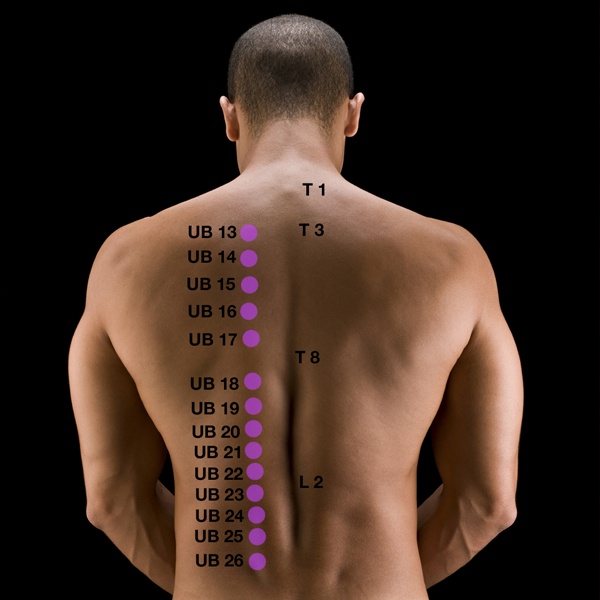
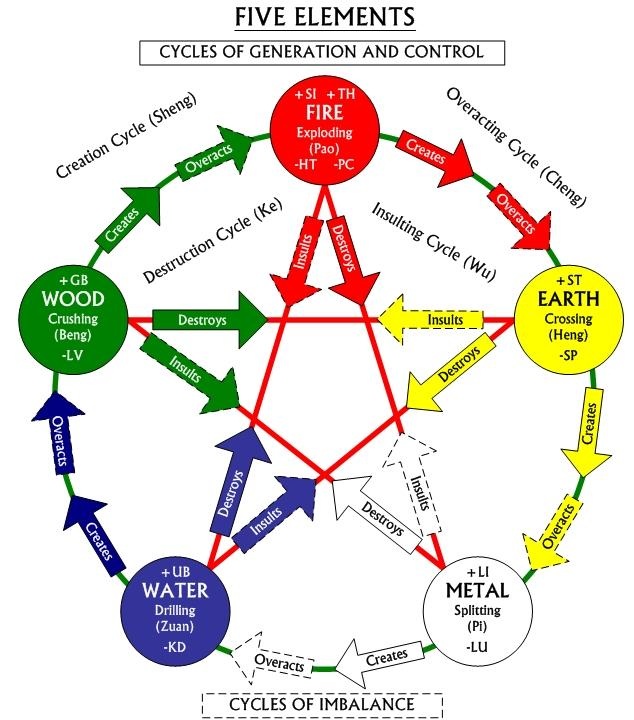
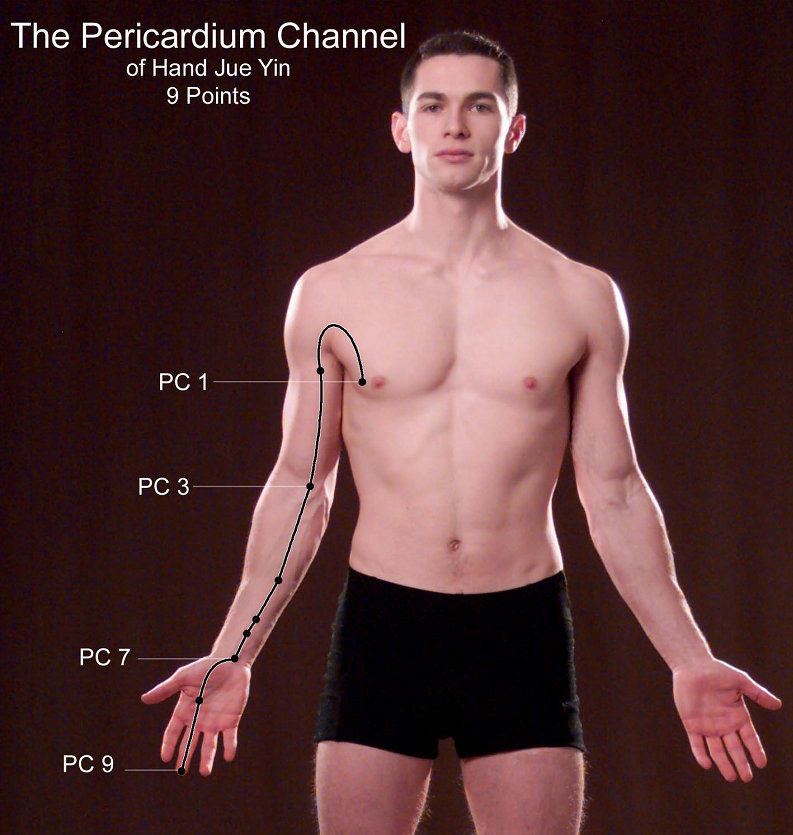
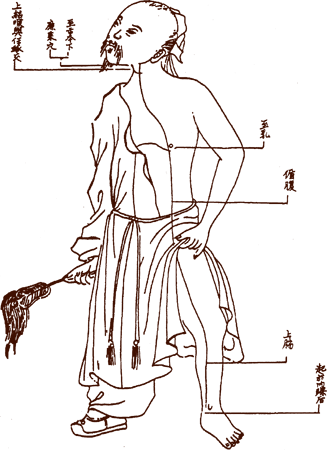
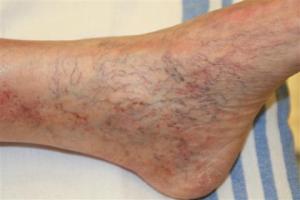
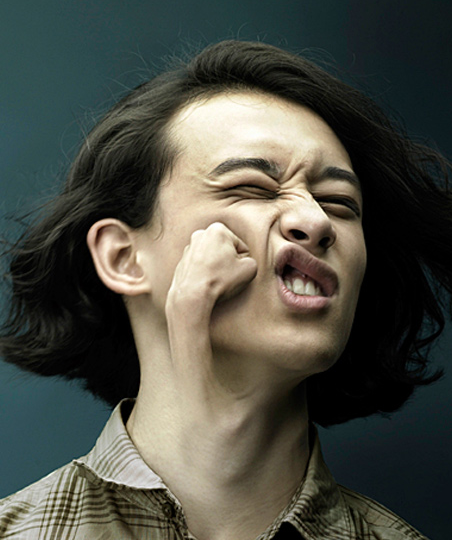
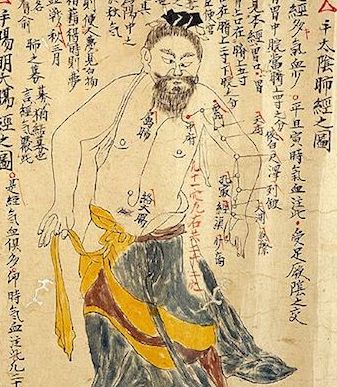
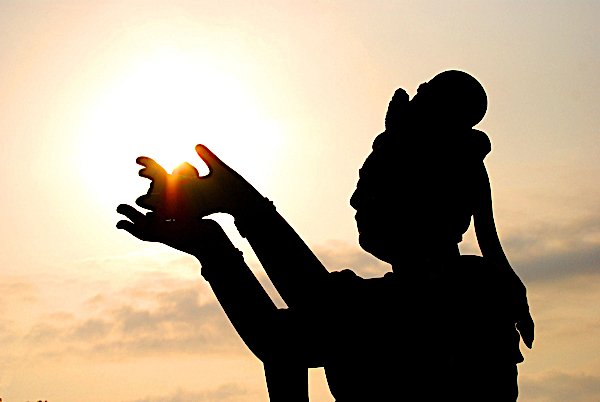
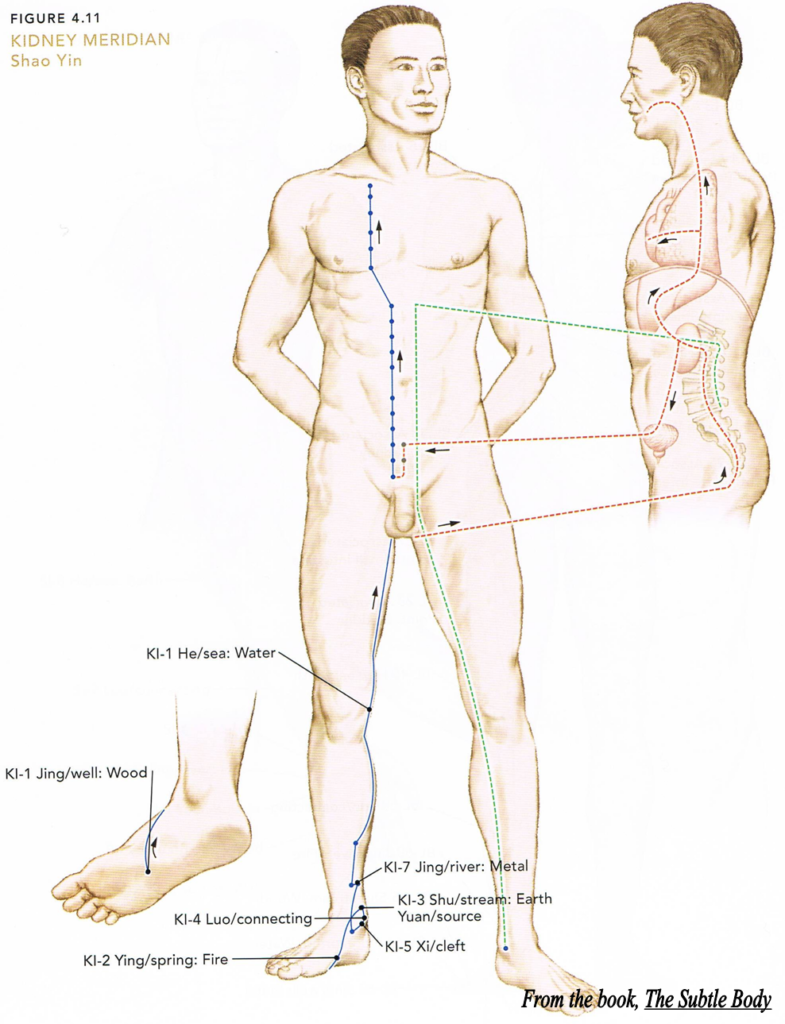




No Comments